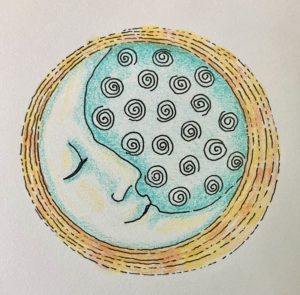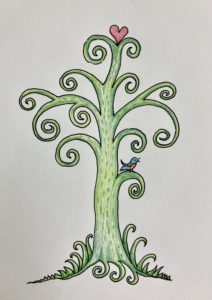
Pace yourself in all you do. Slow down. Smell the roses. Take time to breathe. Notice how slowly nature makes her changes, how a flower seed slowly germinates, begins to sprout roots and stem, and how determined its slow pace to blossoming is. Notice how settled and slowly a tree grows, contented to just be. When you rush you miss out on the subtleties that are inherent in nature, the moments of delight and the chance to feel alive in each moment. Try it and savor what you’ve been missing.
Sending you love,
The Soul Sisters, Jan & Jeanne


